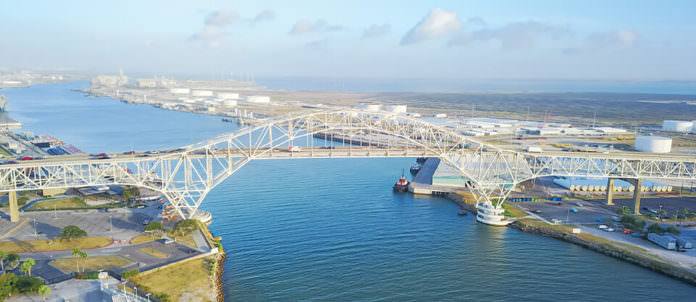
The passage on Thursday of the US/Mexico/Canada Agreement (USMCA), coming on the heels of the signing of the Phase 1 Trade Agreement between the U.S. and China, comes as great news for a domestic U.S. oil and gas industry that is happy to have any form of outside stimulation.
The two agreements create significant new markets with America’s three largest trading partners, lowering some tariffs and eliminating others in the process. The USMCA will result in expanded exports of U.S.-produced oil and natural gas to both Mexico and Canada, and help streamline the permitting and building of new cross-border transportation and pipeline infrastructure.
Both agreements will also create demand for increased export capacity at Texas ports, which already accommodate the vast majority America’s exports of crude oil and refined petroleum products. This in turn will likely help spur demand for increased production in the Eagle Ford Shale and Permian Basin, the two major Texas production fields that provide most of the exported crude oil to Texas ports.
The U.S./China Phase 1 deal (Phase 1) is even more explicit: It requires China to purchase at least $50 billion of U.S. oil and natural gas during 2020 and 2021. Phase 1 also contains clearly-defined enforcement mechanisms that the U.S. can implement should China renege on any portion of the agreement. This is the first time China has been willing to agree to this kind of enforcement provision in any trade agreement.
Unfortunately, Phase 1 does not eliminate the U.S. import tariffs on steel or aluminum that have served to increase the cost of building new oil field infrastructure. The industry will remain hopeful that these tariffs might be rolled into the next phase of negotiations between the two countries.
While not a panacea for all of the oil industry’s troubles, the execution of the two massive new trade agreements comes as welcome news to an industry in the midst of slowing down.














